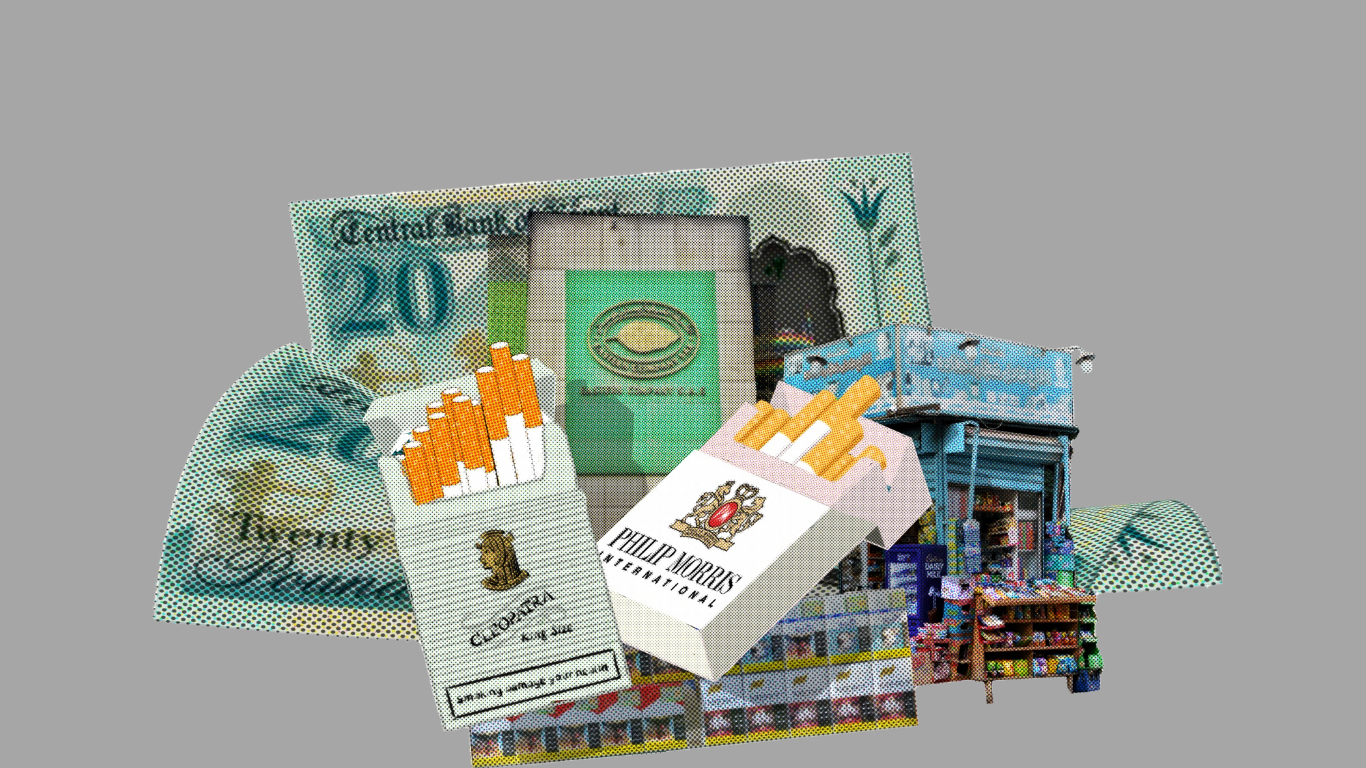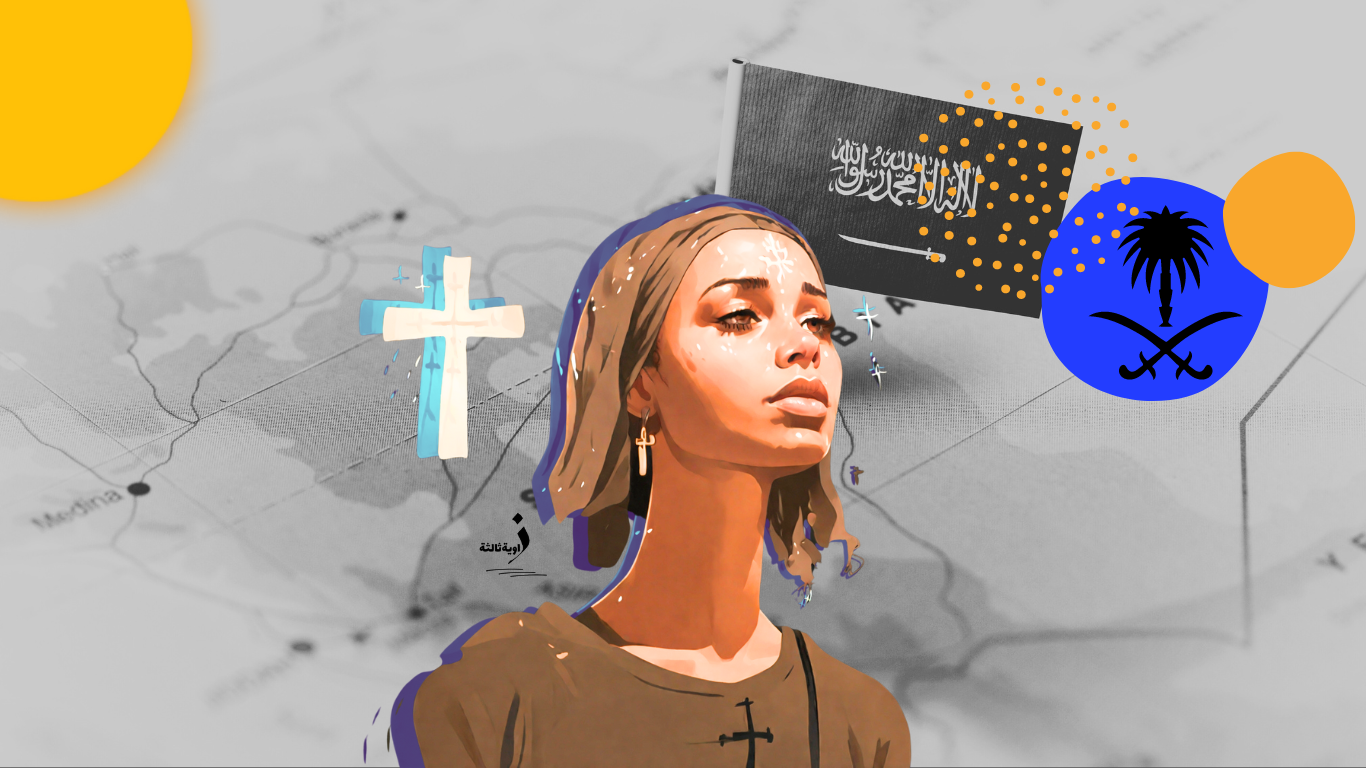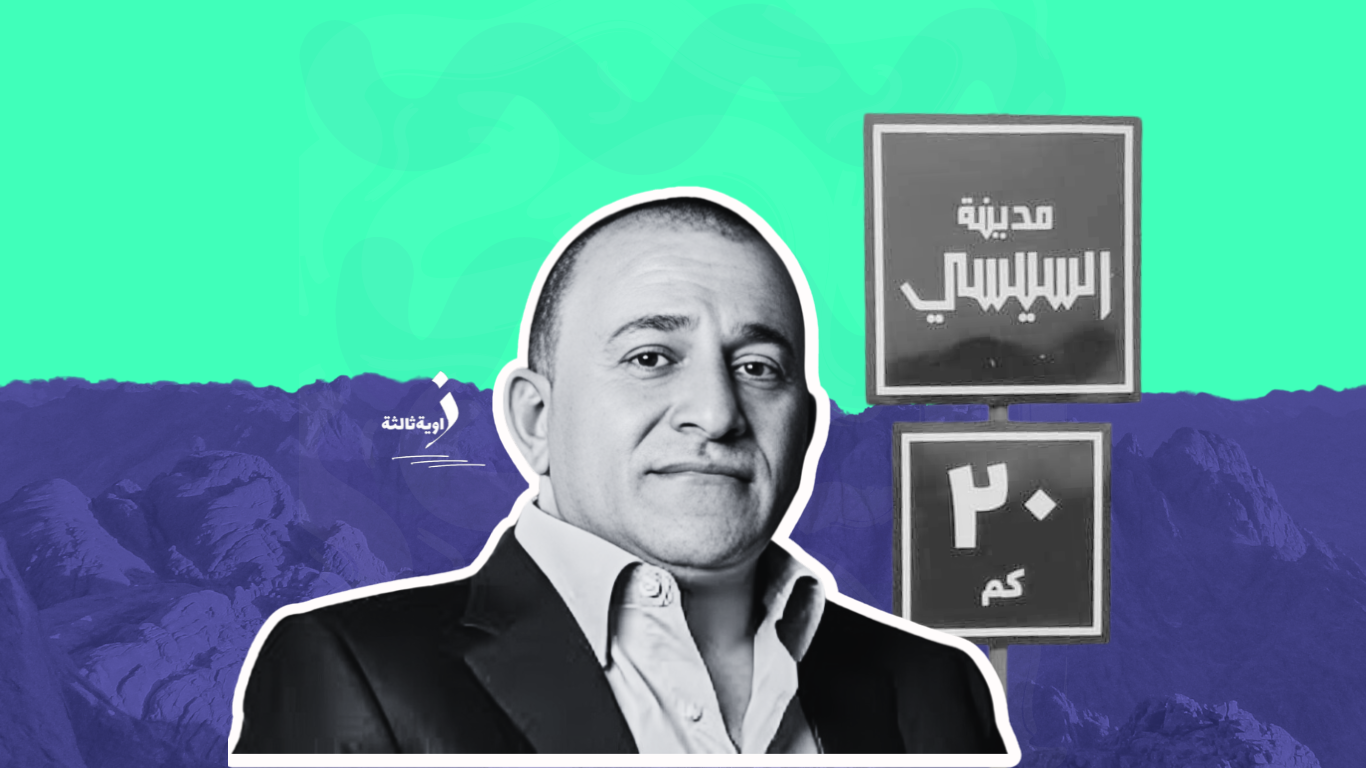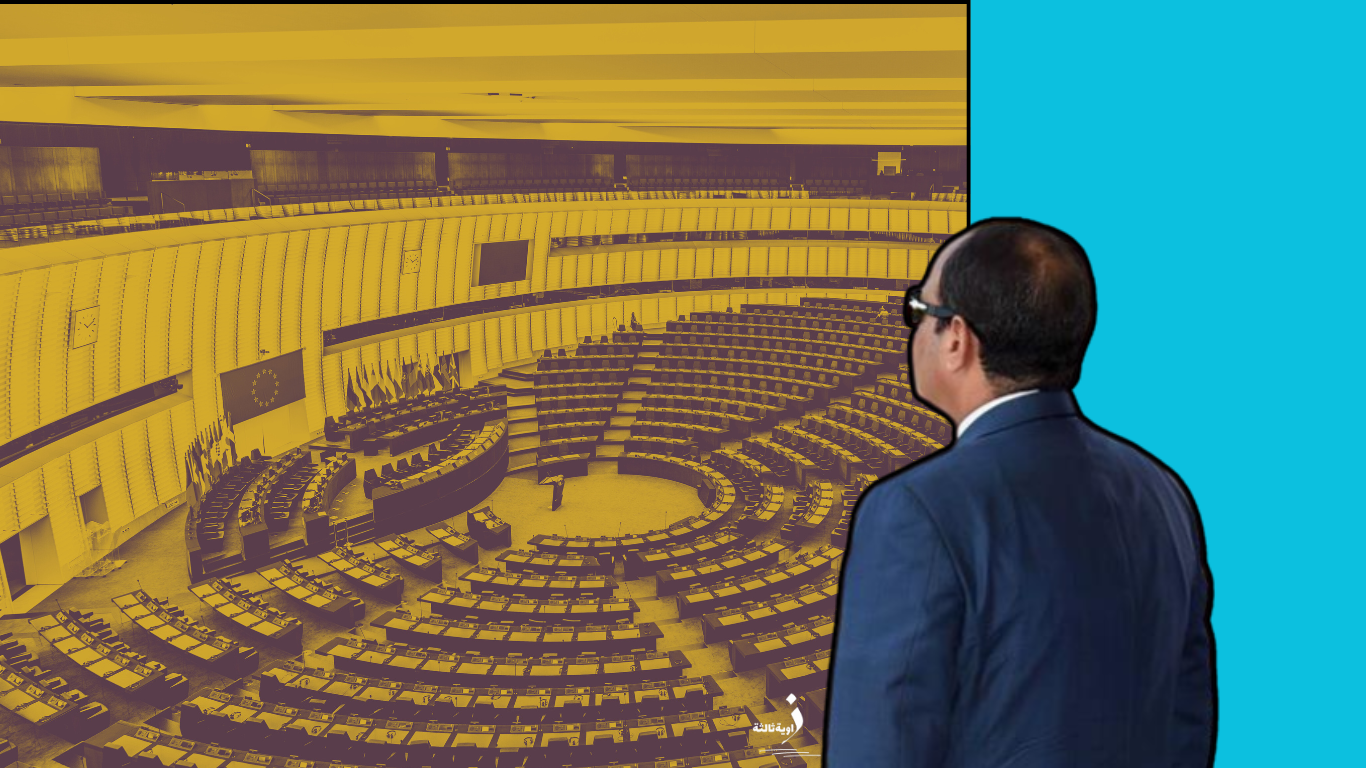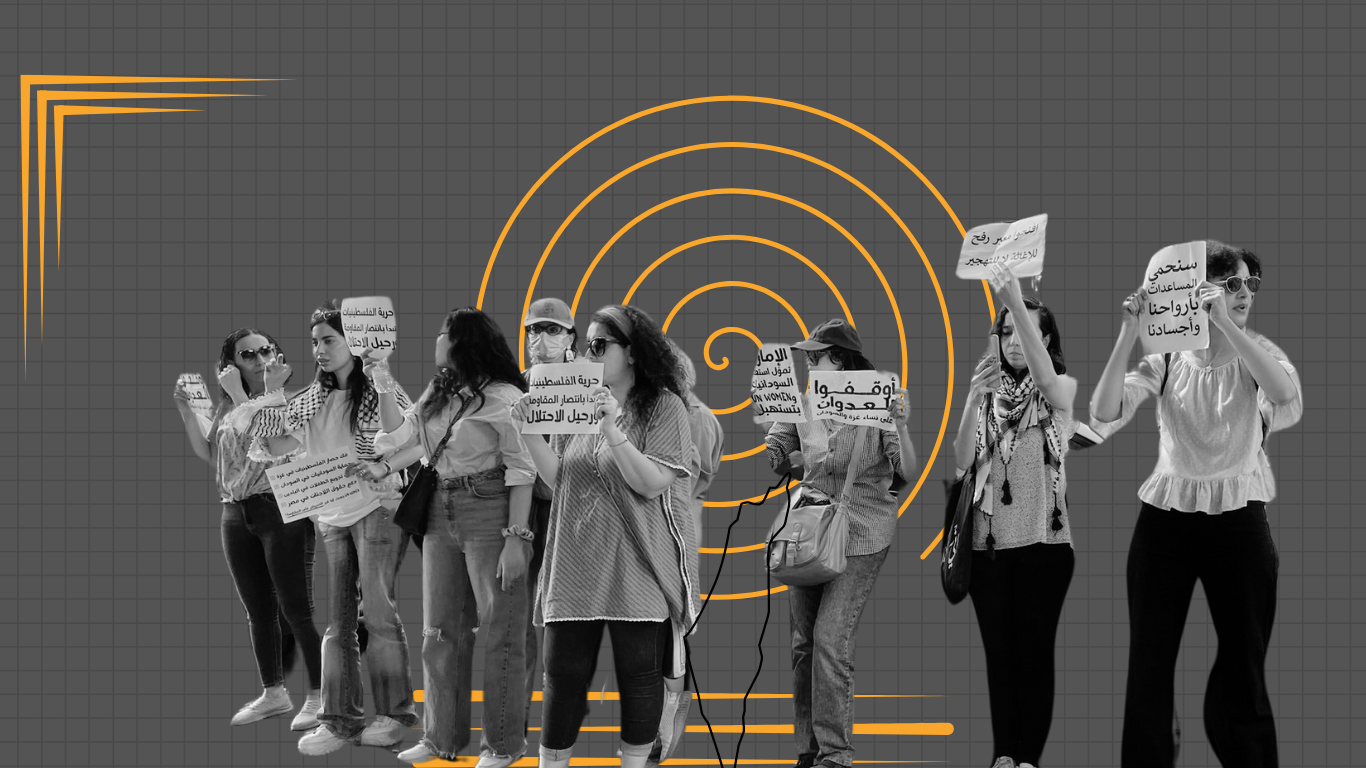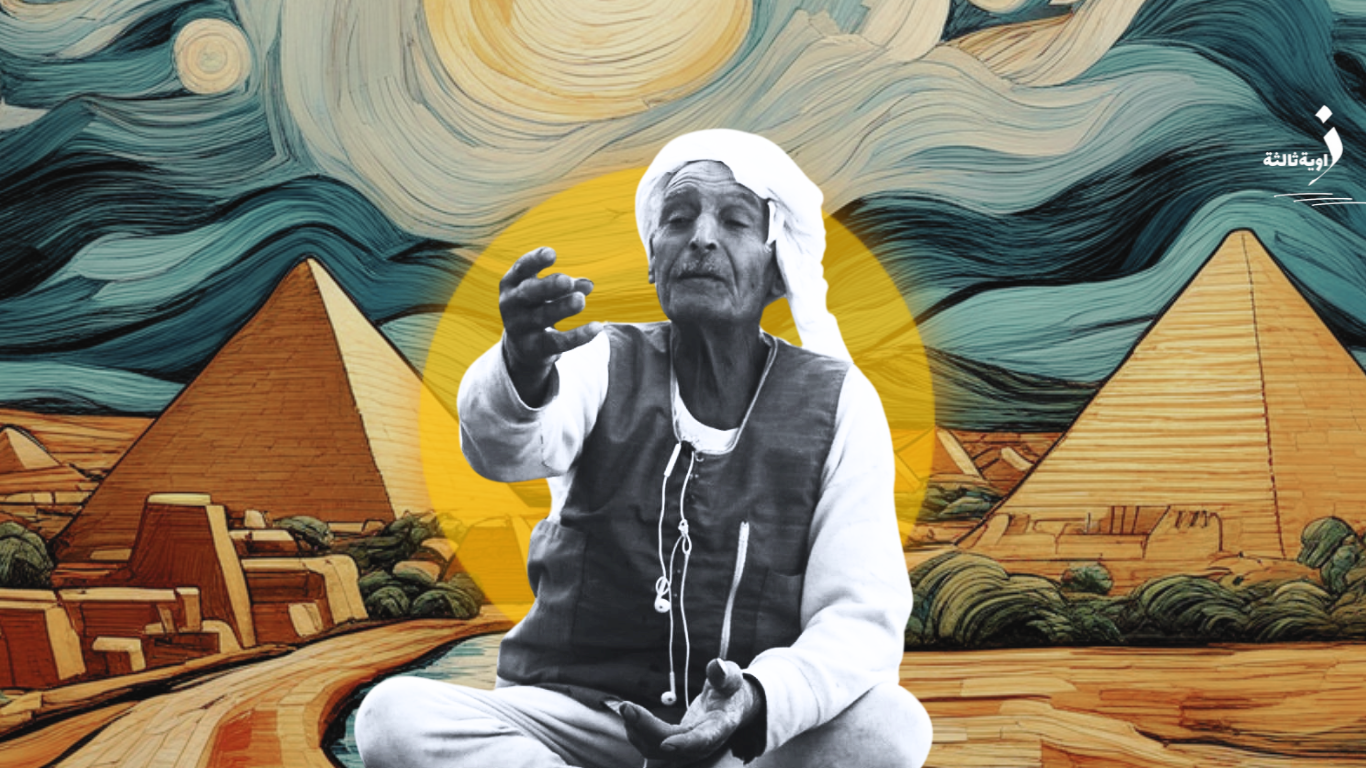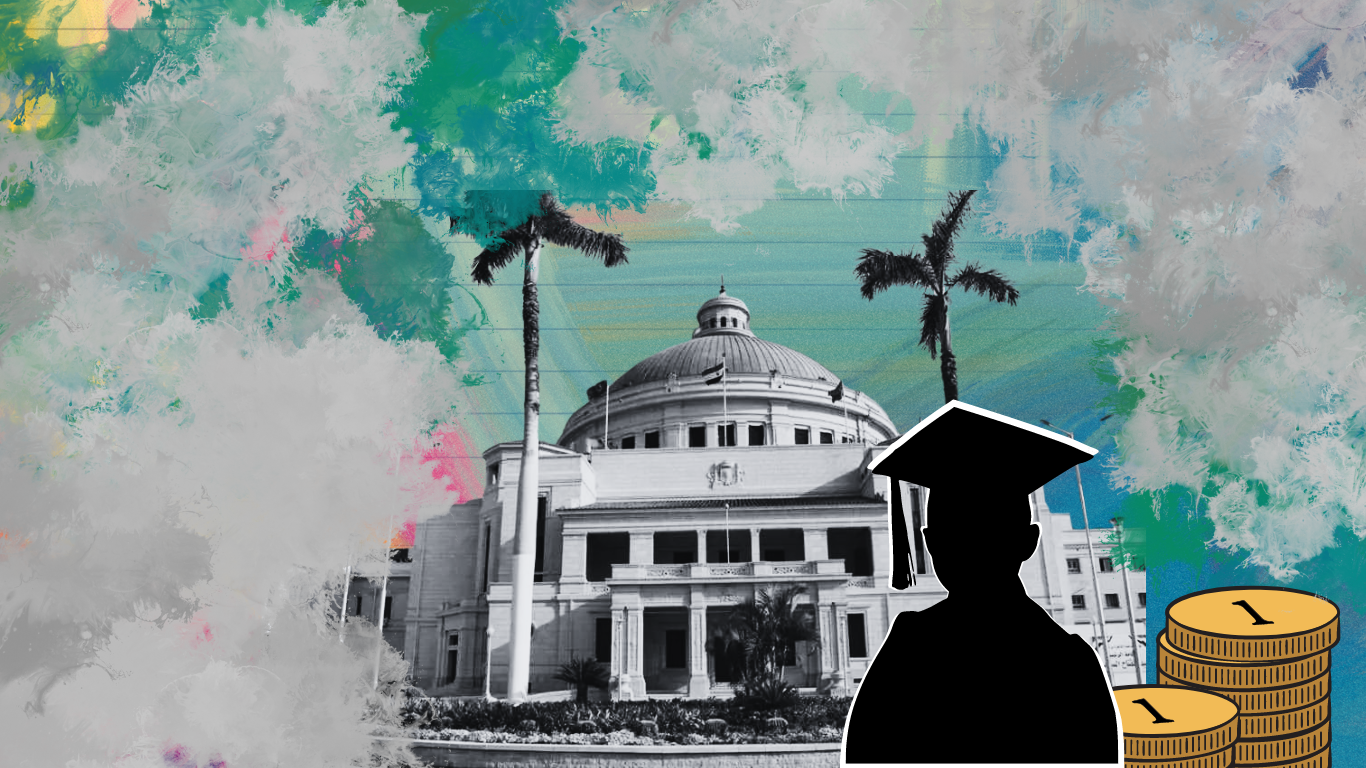Elham Eidarous, the representative of the founders of the “The Bread and Freedom Party” party, complained in a live broadcast in front of one of the real estate offices in the Engineers district in Giza, Egypt. She expressed her inability to obtain the authorization for candidacy for the potential candidate Gameela Ismail. Meanwhile, thousands of supporters of the current president, Abdel Fattah el-Sisi, were easily obtaining authorizations. El-Sisi managed to collect 25,000 authorizations in 10 minutes, as mentioned by the media figure Ahmed Moussa.
El-Sisi obtained 1,130,000 popular endorsements, in addition to 424 parliamentary endorsements, which is multiples of what the Egyptian presidential election law requires. The law stipulates that a candidate must obtain either 20 parliamentary endorsements or 25,000 popular authorizations, with a minimum of 1,000 from each governorate, and no citizen or deputy can endorse more than one candidate.
How did El-Sisi collect authorizations?
One of those who issued authorization for El-Sisi’s candidacy, Mai Omran (pseudonym), revealed that she did not go to the real estate documentation office. She only learned about the authorization issued in her name after the president submitted his candidacy papers, which included the mentioned authorization.
Omran works as a teacher in one of the national institutes in Giza. The schools were originally dedicated to foreign communities in Egypt during the British occupation, and were nationalized by the late President Gamal Abdel Nasser. Currently, they are under the full supervision of the Ministry of Education. These schools are managed by a cooperative association headed by the Minister of Education, currently led by Mohamed Elkotb, a supporter of President Sisi, as evident from his Facebook page dedicated to supporting Sisi in his electoral campaign.
Omran explained, “A week before the start of the current academic semester, the school administration requested photocopies of our national ID cards under the pretext of updating data. We were threatened that if we did not submit the cards, our salaries would be suspended. So, my colleagues and I began the process on the first day of the semester, October 1st.” She later learned about the harassment and violations faced by supporters of the potential candidate Ahmed Tantawi through social media.
After the incident, Omran tried to investigate whether her school was the only one collecting ID cards to issue authorizations. She contacted a friend working in a school in Alexandria, who informed her that the same scenario was repeated in all 40 national institutes and schools.
With the announcement of the presidential elections schedule by the National Elections Authority on September 25, 2023, the Civil Democratic Movement issued a statement describing the proposed timeframe for completing the candidacy requirements as extremely short. They considered it a clear message that there is an attempt to hinder candidates and prevent them from collecting the required 25,000 popular authorizations from 15 governorates, with a minimum of 1,000 from each governorate.
The two prominent parties, the Future of the Nation Party and the Homeland Protectors Party, played a significant role in mobilizing for El-Sisi and collecting authorizations from popular areas across the country, including the historic Shubra neighborhood in Cairo.
In “Al-Teraa Street” parallel to Shubra Street, Michael Abdel Shahid (pseudonym) owns a gift shop. Despite his preparations for the Christmas season, where he displays seasonal products, his mind is occupied with another season that comes only every six years – the presidential elections season.
Michael says, “In recent years, the street has become famous for its decorations during seasons and holidays. Locals come to take souvenir photos with the giant lantern or the decorated Christmas tree. The parliamentary deputy ‘Ihab Al-Tamawi’ makes it a point every year to collaborate with us in decorating the street, placing a Christmas tree or a large lantern to take commemorative photos with, along with a large congratulatory sign bearing his name and the name of the party to which he belongs. This opened the door for me to get to know the staff in his office.”
Michael adds, “One of the staff members there had a good relationship with me. So, during the parliamentary elections in 2021, he asked for my help in gathering votes for his deputy. I did help him by collecting votes from many residents and workers in the area, especially the poor who needed money or food.” He justified his actions by stating that the deputy was running for re-election, having won a previous parliamentary term. He believed that the event should be leveraged to bring more goods and financial assistance to the poor in the area, stating, “The deputy will pay in any case, so why should that money go to others?”
After the third week of September, Michael received a call from his friend working in the office of ‘Al-Tamawi.,’ informing him of a “benefit.” The benefit was divided into two parts: the first part involved collecting the largest number of photos of national ID cards from the residents of the district or elsewhere, and the second part involved gathering a large number of residents and workers in the shops to be present in front of Gazirat Badran Documentation Office – the real estate registry. Those present were expected to appear strong or capable of engaging in fights, both men and women, to hinder access to the office. They would be paid 400 pounds per day (13 dollars), while those who attended for less than 3 hours would receive a bag of food items consisting of rice, sugar, and oil after submitting an authorization supporting President Abdel Fattah el-Sisi. Michael would receive 100 pounds (3.24 dollars) for each person going to the office and only 50 pounds (1.62 dollars) for each national ID card photo. This offer was tempting for Michael, who was still facing the repercussions of the dollar crisis on his import-based business. This led him to reconsider changing the nature of his store, and for the second time, he justified to himself that Sisi’s success was certain, with or without his assistance.
Michael was not the only one thinking this way. Mohamed El-Hassani (pseudonym), the owner of a “clothing brush” shop in the alley of Al-Ra’i Al-Saleh Street in Shubra, shared the same mindset. He also collected many endorsements of support from the Red Angle district, where he lives, for the benefit of Mohammad Gamal Al-Din, the head of public work in North Cairo for a party called “Watan.”
El-Hassani, who agreed to speak with us under a pseudonym out of fear of security targeting, said that the majority of street vendors who do not own commercial stores need support from someone who can protect them from local authorities or the police department. Some pay fees, and others, like him, approach those in positions who need their services, especially political parties supporting the authorities. El-Hassani narrated how he met the head of public work at the party when he faced harassment from one of the shop owners who wanted him evicted for spreading his goods in front of the store. He sought the help of the party through his friend, and indeed, they were able to resolve the issue. Since then, he has been sought after to participate in what he calls “extras,” who appear in support rallies, election campaigns, or conferences.
El-Hassani received 5,000 pounds (161.81 dollars) for collecting ID card photos of citizens. He also received 3,000 pounds for gathering a group of 20 people who gathered in front of the documentation office in Al-Zawya Al-Hamra, organizing part of the party’s participation in the October 2nd rallies when the president announced his candidacy.
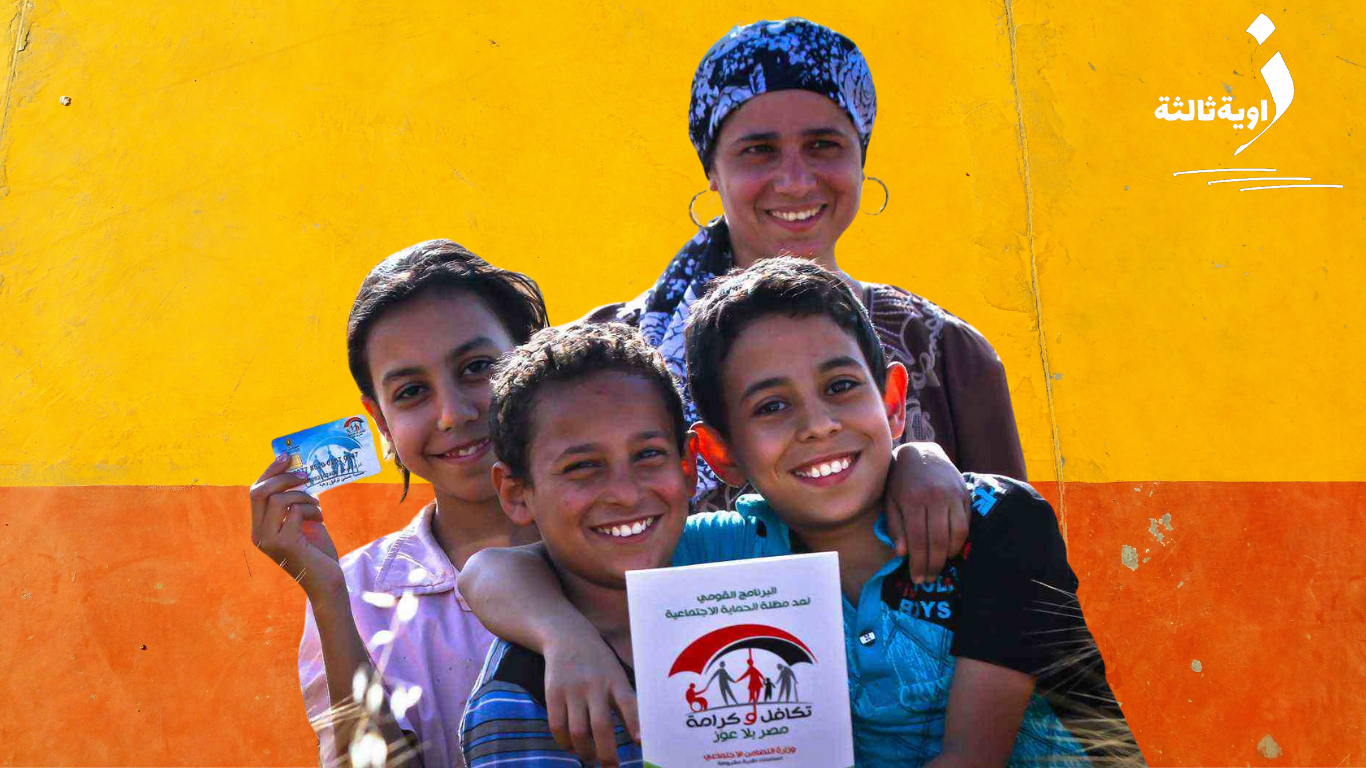
Several years ago, Abla Hendawy (pseudonym) relied on the government subsidy “Takaful and Karama” (provided by the Ministry of Social Solidarity to limited-income categories under the umbrella of developing social safety nets) as a fixed income, in addition to working as a seasonal domestic worker (earning 710 Egyptian pounds monthly, according to her certificate). In September of last year, she was surprised by a phone call from the responsible official for the Takaful and Karama file at the Social Solidarity Unit in Bulaq El Dakrour. This caused her concern. The next day, she was in front of the official’s office, who informed her of the necessity to issue a support authorization for the president. He conveyed that these were the instructions from the ministry, and in case of refusal, the subsidy would be suspended.
She tried to evade the matter, claiming that she did not know the procedures well. However, he insisted and provided her with a contact number for another employee who claimed to be a “volunteer helping people like her.” Indeed, she contacted him, only to find out that he worked in the office of the parliamentarian “H.M.” He asked her to contact him after a few days when the collection of authorizations began. She met him in front of the authentication office in Dokki, where she issued the authorization.
Abla says, “When he learned that I worked as a daily domestic worker, he asked me to be present in front of the office in exchange for receiving a daily wage. I attended for three days and received 1000 pounds.”
Abla believes that she did nothing wrong. For her, it’s just a job to sustain herself and her family day by day. Elections and politics are not her concerns; her only concern is securing her daily bread. Whoever sits in the presidential chair does not matter to her; she does not care.
The Weapon of Poverty
In commentary, economist Ilhami Elmirghani, Vice President of the Popular Socialist Alliance Party, stated that the political exploitation of the poor in Egypt has extended throughout modern history, from Isma’il Sedki and Mohamed Mahmoud to the post-July 23 movement era and up to the present moment. However, the difference is that poverty and unemployment rates among Egyptians are steadily increasing in tandem with the rise of directed political funds. He emphasized that “state agencies intervene in favor of a specific candidate, treating it as a fait accompli.”
He added, “30 percent of Egyptians are poor, representing about 30 million Egyptians. About 70 percent of Egyptians work seasonally or in the parallel economy – the informal sector – equivalent to about 20 million, known as ‘Arzakya.’ In addition, around 5 million families receive Takaful and karama pension (representing about 22 million citizens), and thousands of criminals are still under monthly police surveillance.” He pointed out that all these groups constitute the main social base for the political exploitation of the poor, as they are continuously mobilized. Starting from networks of relationships stretching from the days of the Socialist Union to the National Party during Mubarak’s era, and now the Future of the Nation party during Sisi’s era (multiple-sized buses have been observed gathering tens of thousands of citizens to issue authorizations and show massive celebrations supporting Sisi in exchange for a meal and money). He questioned the possibility of a poor worker, daily laborer, street vendor, or small business owner refusing to issue an authorization or joining compulsory support crowds, stating that “this applies to all workers in all government and private entities. This is part of the political corruption we have been experiencing for decades, and under the security grip, whoever refuses faces imprisonment. Therefore, citizens are deprived of willpower and act against their interests and the interests of the class to which they belong. They support political figures who led them into poverty and continue to reproduce it, lacking the awareness and necessary ability to confront or bear the burdens of rejection.”
Commenting on the political funds used, he concluded, “Businessmen mobilization occurs through various means, including advertising banners for the state candidate, or forcing their workers and employees to support the candidate. In addition to using their company’s transportation means to take workers to election conferences, polling stations, and committees. This is in addition to direct cash donations to election campaigns to avoid state repression and its apparatuses and to avoid affecting their investments.” He called for state agencies to remain neutral in any electoral event, set a ceiling for spending, transparency in announcing the sources of election campaign financing, and fair treatment of all candidates, whether in freedom of movement or explaining their visions and programs, if any.
Forcing the Agenda
Citizens were surprised by systematic campaigns conducted by police forces and parties close to the authorities, notably Future of the Nation and Homeland Protectors, in addition to groups operating outside the law. These campaigns aimed to force citizens to surrender their identity cards. Testimonies recall that officials in government entities compelled their subordinates to hand over their personal IDs under the threat of dismissal or other penalties. In the freelance sector, police groups collected IDs from cafe owners, garbage collectors, street vendors, beggars, taxi drivers, and garage owners. Each individual was required to collect 10 IDs from other citizens, as is customary in every election process.
On September 15th last year, we published an investigation titled Forcing the Agenda: Coercive Preparations for Egypt’s Presidential Polls, At that time, we learned that Egyptian security forces were collecting citizens’ IDs in populous areas, obtaining copies of them. We did not know then why this was happening even before the announcement of the presidential election date. In this report, Emad (a pseudonym to protect the source’s identity) stated in his interview with Zawia3 that he was surprised two days ago by a security campaign raiding the street where he lives in the Imbaba residential area in Giza. He tried to enter his home, fearing that the campaign was part of the random arrest campaigns that have been widespread for weeks. However, he was asked about his personal ID. He added, “The campaign collected all the personal IDs of passers-by on the street, as well as the owners of shops and cafes and their regulars. Then they told us that they would keep them or keep a copy until the presidential elections.” The campaign that followed Emad and his neighbors was not isolated; it was repeated in areas in central Cairo, especially with some cafe owners in Daher and Waili.
Our report revealed at that time that it had become routine for government employees to receive almost daily orders revolving around electing Sisi for a third presidential term, with almost complete tightening and no opportunity to discuss other possible candidates. There were threats if anyone considered issuing a legal proxy at the real estate registry for another candidate. Shaimaa (a pseudonym), a government employee, did not feel any strangeness from these directives. According to her testimony, the process had become routine. In the previous elections in 2018, there were direct orders to elect the president. Moreover, support forms for Sisi were distributed to departments and offices, and those who refused to sign faced administrative penalties that could lead to dismissal from work.

It is worth mentioning that six public figures had expressed their desire to run for the presidency before the opening of the popular endorsement process at the real estate offices. The first is former parliamentarian Ahmed Tantawi, who hinted at his intention to run in January of last year. He embarked on a long journey dubbed the “Journey of Hope,” starting with his return to Cairo last May. He then launched his electoral campaign, which managed to collect 14,000 endorsements, as he announced in his press conference on October 13th. He declared considering transforming the campaign into a unified political party named the “Hope Movement.”
During the process of collecting endorsements,Tantawi’s campaign faced numerous harassments aimed at preventing his supporters from issuing endorsements. This led him to file official complaints with the National Elections Authority. Before officially launching the popular endorsements, 21 members of his campaign were arrested and referred to trial.
What Tantawi endured was also experienced by the head of the Constitution Party, Gameela Ismail, who decided to withdraw before the end of the endorsement collection period. However, she and her supporters faced restrictions. Meanwhile, both Abdel-Send Yemama, the head of the Wafd Party, and Hazem Omar, the head of the Republican People’s Party, received the support of parliamentary blocs exceeding the required number. As for Farid Zahran, the head of the Egyptian Democratic Party, he obtained the support of his party’s parliamentary bloc consisting of six members, in addition to support from other members of parliament. As for Ahmed Alfadaly, the founder of the Independence Current, despite announcing his desire to run, he has not taken any steps towards that goal.
_________
Everyone we met requested not to disclose their real names, fearing security tracking.




